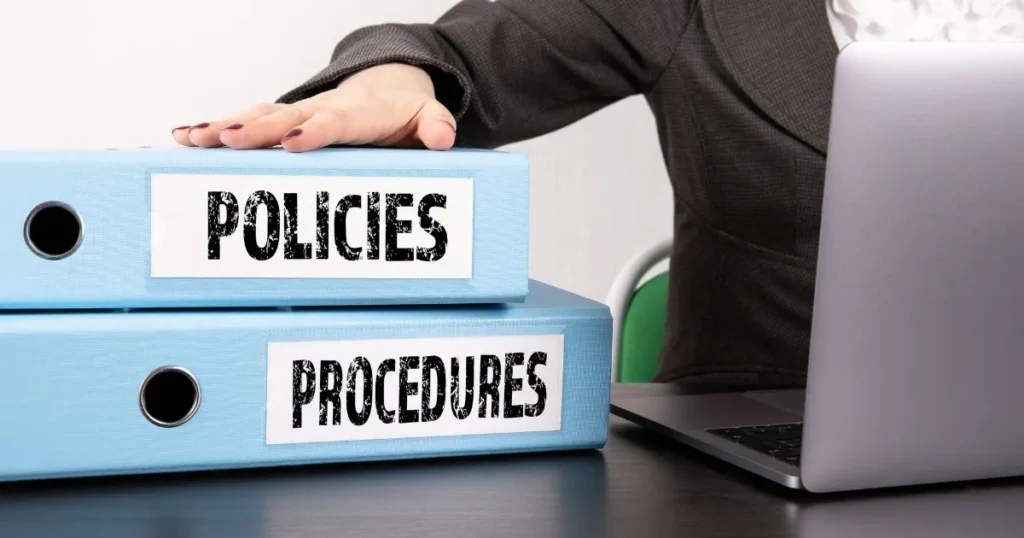SOP In Clinical Research: Ever been curious about how clinical trials maintain accuracy and safety across different sites and teams? That’s where SOP in clinical research comes into play.
Whether you’re curious about how clinical trials really work or looking to build a solid foundation in clinical research, this blog unpacks SOPs in a simple, relatable way, complete with everyday examples and training tips to help you get started.
Let’s roll up our sleeves and read on!
Table of Contents

What is SOP in Clinical Research?
SOP stands for Standard Operating Procedure. So, when we say SOP in clinical research, we’re simply talking about detailed, written instructions that outline how specific tasks or processes should be performed within a clinical trial.
In the clinical research world, consistency isn’t just preferred, it’s non-negotiable. The SOP full form in medical doesn’t differ from other industries, but its impact in drug trials, patient safety, and regulatory compliance is enormous.
Why Do We Need SOPs in Clinical Trials?
So, what’s the big deal? Why not just train people and let them handle things their way?
Here’s why SOPs matter:
- Consistency across sites and teams
- Compliance with regulatory bodies like DCGI, ICH-GCP, FDA
- Clear expectations for staff roles
- Easy training for new employees
- Reduces human error
Objective of Standard Operating Procedure
The objective of a standard operating procedure is to define the most efficient and safe way to perform a task so that the outcome is repeatable and predictable.
Think of it like this:
- It acts as a reference document for ongoing activities.
- It builds accountability in teams.
- It simplifies audits and inspections.
- It helps track who did what and when, which is crucial for data integrity.
Difference Between Standard Operating Procedure and Protocol
Ah, this one trips up a lot of beginners! Let’s clear it up with a simple comparison:
| Features | SOP | Protocol |
| Purpose | Describes how tasks should be done | Describes what the clinical trial will study |
| Scope | Applies across multiple trials or departments | Applies to one specific clinical trial |
| Author | Typically created by QA or Operations team | Created by the principal investigator |
| Example | SOP on how to report adverse events | Protocol describing drug testing for diabetes |
See the difference? SOPs are the “how”, protocols are the “what”.
Standard Operating Procedure Examples
Let’s put theory into practice. Here are some standard operating procedure examples used in Indian clinical research centers:
- SOP for Informed Consent Process
- SOP for Adverse Event Reporting
- SOP for Site Initiation Visits
- SOP for Case Report Form (CRF) completion
- SOP for Data entry in EDC (Electronic Data Capture)
These documents aren’t just for show, they’re active tools used every single day at reputable clinical research training centers and sites.
Advantages of Standard Operating Procedures
Are you still wondering, “Why go through the hassle of writing and updating SOPs?” Here are a few straightforward benefits:
- Reduces ambiguity in task execution
- Improves efficiency and coordination
- Strengthens compliance with regulations
- Boosts confidence during audits
- Helps new team members get trained quickly
That’s why top clinical research institutes like LLRI (Learning Labb Research Institute) integrate SOP training into every clinical research course they offer.

SOP in Clinical Research: Role in Training & Courses
If you’re eyeing a future in this space, you’ll need more than textbook knowledge. You need real-world training.
Where can you learn about SOPs in India?
Here are some options:
- Learning Labb Research Institute (LLRI): Known for hands-on exposure to SOP writing, audit handling, and regulatory document management.
- Best Institute for PG Diploma in Clinical Research: Look for institutes that include SOP modules, regulatory ethics, and lab work.
Clinical Research Course Fees
The cost of a clinical research course in India can range anywhere from ₹30,000 to ₹2,50,000. These fees usually depend on the duration of the course, the depth of the modules, hands-on training, and whether internships or placement assistance are included.
Learning Labb Research Institute (LLRI) stands out for offering value-driven programs that are both practical and affordable. With transparent fee structures, no hidden charges, and flexible monthly EMI options, LLRI makes it easier for students from different backgrounds to step into the clinical research field with confidence.
Plus, LLRI offers scholarship options for deserving candidates, making quality education more accessible.
Need help deciding which course fits your budget and goals? Their academic counsellors are known for offering honest, student-first guidance. Book A DEMO now.
What Happens If SOPs Are Ignored?
Let’s be real. Ignoring SOPs isn’t just lazy – it can be legally dangerous.
Violations can lead to:
- FDA warning letters
- Site shutdowns
- Data disqualification
- Loss of participant trust
That’s why institutes like LLRI teach SOP awareness in every clinical research training session.
How Do You Actually Write an SOP?
Here’s a quick guide:
- Title – Clear and descriptive
- Purpose – Why the SOP exists
- Scope – Where and when it applies
- Responsibilities – Who does what
- Procedure – Step-by-step instructions
- References – Guidelines or regulations
- Revision History – Track changes over time
Always use simple language. SOPs aren’t academic essays; they’re working documents.

On A Final Note…
Whether you’re stepping into the field or upgrading your skills, knowing the ins and outs of an SOP in clinical research is a game-changer. From ensuring compliance to streamlining team efforts, SOPs are the secret sauce behind successful trials.
And if you’re wondering where to start? Enrolling in a well-structured clinical research course at a trusted clinical research institute like Learning Labb Research Institute (LLRI), can give you the clarity and confidence to navigate this field like a pro.
Interested in taking your first step? Check out LLRI’s clinical research training options, along with other programs and discover how the programs could help you not just understand SOPs, but actually use them in the real-world!
FAQs on SOP in Clinical Research
What is SOP in clinical research in simple words?
It’s a set of step-by-step instructions used by clinical trial teams to make sure tasks are done the same way, every time.
What’s the SOP full form in medical settings?
Standard Operating Procedure.
How is SOP different from protocol in clinical trials?
SOPs guide how tasks are done. Protocols explain what the study is about and how it’s structured.
Are SOPs only useful in big pharma trials?
Not at all. Even small investigator-led studies follow SOPs to meet ethical and legal standards.
Where can I learn how to write SOPs for clinical research?
LLRI offers hands-on training and projects focused specifically on SOP creation and review.

